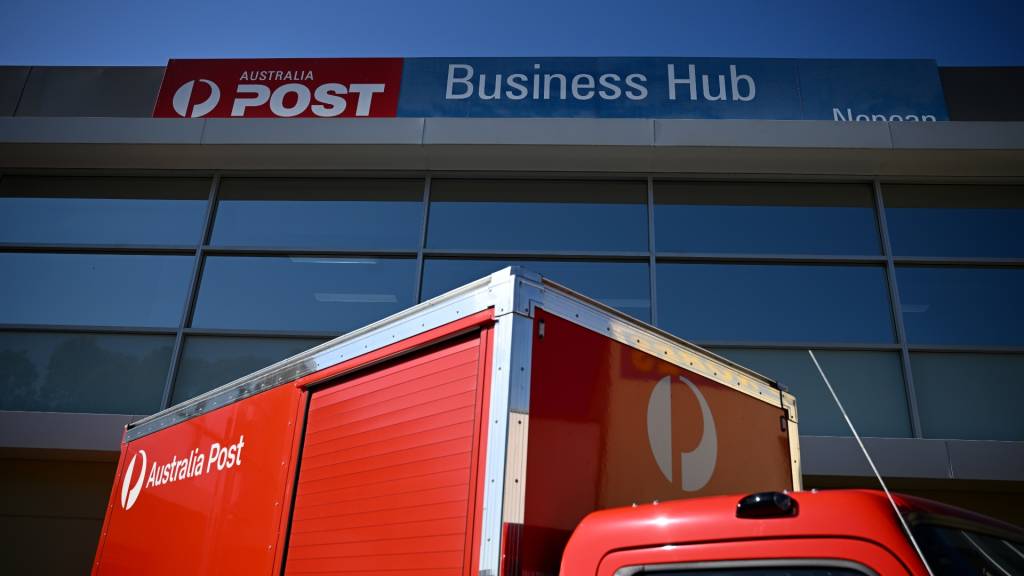Two days after Australia Post suspended deliveries to the United States, exporters rocked by the announcement are seeking workarounds for their valuable American customers — and bracing for what might come next.
Australia Post on Tuesday confirmed it will temporarily pause parcel deliveries to the United States and Puerto Rico, until further notice, due to the nation’s strict new tariff regime.
Related Article Block Placeholder
Article ID: 314465
The de minimis exemption — which excludes imports worth US$800 or less from tariffs — will expire Friday, exposing billions of dollars in deliveries to new import levies.
Deliveries from Australia are no exception, with those exports set to attract a 10% baseline tariff, or a flat US$80 fee, whichever is higher.
Crucially, transportation carriers are expected to collect and remit those charges to American authorities before the deliveries reach US soil.
Smarter business news. Straight to your inbox.
For startup founders, small businesses and leaders. Build sharper instincts and better strategy by learning from Australia’s smartest business minds. Sign up for free.
By continuing, you agree to our Terms & Conditions and Privacy Policy.
Like other international carriers, Australia Post is yet to implement a system capable of collecting and processing those tariffs.
A temporary suspension is “necessary to allow us to develop and implement a workable solution for our customers,” said Australia Post executive Gary Starr.
“Australia Post continues to work with US and Australian authorities and international postal partners to resume postal service to the US as a priority.”
Australia Post is working with cross-border commerce startup Zonos on a solution that, when launched, will allow Business Contract and My Post Business customers to resume their US deliveries.
Exporters consider alternatives for US shipping
Exporters are reconsidering their US delivery plans and fear extended Australia Post disruptions, on top of the new US tariffs, could harm their business.
Maria Baker, founder of Australian snow apparel brand Nobody’s Princess, said the decision will affect crucial deliveries ahead of the US ski season.
“I have a backlog of some pre-orders that are due to actually go out in a week’s time,” she told SmartCompany.
The American customer base is crucial for Nobody’s Princess, with US sales now equal to its sales across Australia, New Zealand, and its other international markets.
She said the decision is now “whether I just cancel and refund, or I wear the huge cost that it would take to send it through a courier instead, so that they can still get the product”.
Shipping through third-party couriers is an option, but the cost would chew into Nobody’s Princess’ margins.
“And that’s assuming that the customers in the US will be happy to pay the tariffs, because at the moment, the tariffs are basically adding another 30%, 40% on top of the price,” she said.
Baker said the business is growing, but is not yet large enough to move to a third-party logistics provider capable of handling tariff payment and remittance.
“I just don’t have the volume to satisfy their time and effort,” she said.
For now, Baker is holding out for firm answers from Australia Post — and the US administration, which levelled the tariffs in the first place.
After years of steady growth and a clear product-market fit, Baker is confident Nobody’s Princess is carving a unique place in the snow apparel market.
But if a viable plan for US deliveries does not appear, “I don’t know what my business is going to do for the next 12 months, if it’s going to be able to continue,” she said.
“Really, that’s the scary reality.”
Personal connections under strain
Erstwilder, an Australian manufacturer of brooches, earrings, and necklaces, commands a strong US following and is preparing for its Halloween product launch.
However, the Australia Post decision caused the brand to temporarily pause shipments to one of its biggest markets.
“The US is essential for our business,” said Erstwilder co-owner and CFO Adam Lubitz.
“They’re our second-biggest market, and our feeling would be if we’re not able to resume with Australia Post in the next seven to eight days, we’ll look at other options with other carriers.”
After shifting from DHL to Australia Post in April, the business hopes the government-owned carrier will find a solution to its payment and remittance system soon.
“We think the best bit right now is still Australia Post, once we get through some of the backend and admin side of how these taxes need to be collected and paid,” said Lubitz.
Beyond business alone, Lubitz said the new tariff regime and the difficulty transportation carriers are facing will personally affect customers with an emotional connection to the brand.
“They might wear them to chemotherapy treatment. They often wear them as little emblems of bravery themselves,” said Lubitz.
“And there was an enormous amount of emotion from our community in America.
“Really, the feeling was sort of a goodbye.
“We’re keen to see what will happen, and we’re confident things will reopen.”
Clear communication vital
Retail industry expert and consultant Dean Salakas has watched the situation unfold in his 1,500-member-strong WhatsApp group, where industry luminaries discussed how to handle the Australia Post decision.
Exporters flocking to third-party carriers could only cause further delays for US customers, he said.
Salakas said small businesses should communicate those challenges clearly with their US customers.
“If they’re communicating that to their customers, then that’s great, because at least they’ve given them a heads up,” he said.
“You’re not going to have this mass issue at the other end, when you send something and tell [customers] it will take a few days and it takes a few weeks.”


